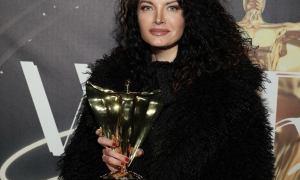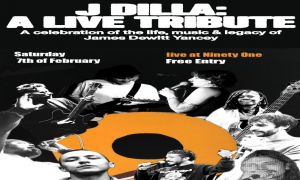Concert promoters.
While Hess has come up with some questionable advice in the past (hiring hot chicks to attend your gigs), he is definitely onto something with the concert promoter thing.
As Hess rightly points out, simply making contacts isn't enough. Artists need to have meaningful connections that develop into good relationships. Musicians need to focus on connecting with industry professionals who are accessible, influential, and looking for help. Concert promoters fit all of these criteria.
Because promoters are more likely to operate on a local level than, say, record executives, they can be more accessible than a lot of people in the industry. A promoter who works out of one city will often have a special connection to that area, and be more interested in helping local bands.
Promoters have a huge amount of work to do, and are not as much of a draw for cheap and eager labor as record labels. Musicians stand to benefit a great deal from interning or working part time for a promoter, perhaps more than they would get from a similar position at a record label. Hess breaks it down rather convincingly:
The reality is, most (record label) interns never get into a position where they can truly learn much at all. However, [when] working for a promoter, your ability to learn how the industry really works (at least on the touring and promotional side) goes way up! In addition, the number of contacts you can make are 200 times more than what you would likely make working at a record label. And compared to record labels, there is a lot less competition, currently anyway, for internships or jobs with a promoter.
Here's another important argument for reaching out to promoters that Hess doesn't get into:
In these uncertain times, concert promoters are one of the few music industry professions whose influence is actually increasing. Remember that live music is becoming more important for the music industry? That means concert promoters are becoming more important as well. Promoters are now in a position where the vast network of contacts they have always had will become more dependent on them.
Of all the people working in the music industry, musicians and promoters may have the most in common. Like musicians, promoters take on huge risks for which the financial rewards are uncertain. Both are often driven by a genuine passion for art. This being the case, the potential for meaningful relationships among artists and promoters seems pretty high. Who knows? Maybe theres potential for actual friendships, too.


























